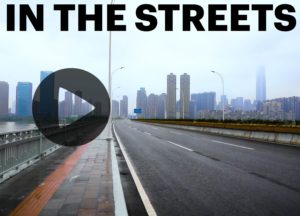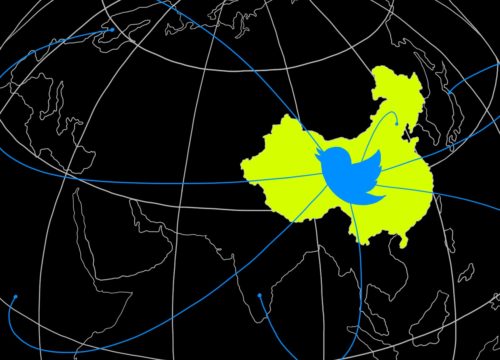News roundup: 731 million internet users and a VPN clampdown
Top China news for January 23, 2017. Get this daily digest delivered to your inbox by signing up at supchina.com/subscribe.
731 million internet users
This weekend, the Chinese government agency that releases statistics about digital networks said that China now has 731 million internet users, with 695 million of them using mobile connections. As Tech in Asia notes, the report also says that the number of “mobile wallet” users is up to 469 million, up 31.2 percent in the past year, and WeChat remains the most popular app, used by 80 percent of all internet users.
On Sunday, the government also announced a 100 billion yuan ($14.556 billion) internet investment fund to “support internet companies and the Internet Plus action plan via equity investment.” (See The China Project’s phrase directory on government terms like Internet Plus.)
Websites shut down, VPNs under scrutiny
Enthusiasm for the internet does not, of course, mean all of the internet: On Friday, 17 Chinese websites were shut down by the authorities. Two of the affected sites were run by a think tank founded by Mao Yushi (茅于轼, pictured above) a pro-free-market economist and longtime critic of Party orthodoxy. On Sunday, a new campaign was announced that specifically names Virtual Private Networks (VPNs) as targets for regulation. VPNs are used to get around the internet blocks of the “Great Firewall.” As the South China Morning Post notes, “a cat-and-mouse game has thus been going on for years between the authorities and VPN service providers,” but it is unusual for the authorities to specifically draw attention to the issue. The campaign was widely discussed on Chinese social media: There is a roundup of the discussion here, or see this thread (in Chinese) on Weibo.
Trump kills TPP, leaving “door open” for China
President Donald Trump signed an executive order formally withdrawing the United States’ participation in the Trans-Pacific Partnership (TPP) on Monday. The Washington Post calls the announcement “largely symbolic” because “the deal was already essentially dead in Congress…but served to signal that Trump’s tough talk on trade during the campaign will carry over to his new administration.” Many observers believe the end of TPP will be a boon for China. CNN says the decision “leaves the door open for Beijing to push its own brand of trade,” while Richard Haas, president of the Council on Foreign Relations, tweeted that “China could well be principal beneficiary.”
—Jeremy Goldkorn
Today on The China Project
In “Rebirth of artisanal farming,” Michelle Winglee profiles a man who left his teaching job at the prestigious Peking University to raise livestock and grow vegetables, fruits, and grains using only preindustrial techniques.
This issue of the The China Project newsletter was produced by Sky Canaves, Lucas Niewenhuis, and Jiayun Feng. More China stories worth your time are curated below, with the most important ones at the top of each section.
BUSINESS AND TECHNOLOGY:
-
These companies are at risk in a U.S.-China trade war / Bloomberg
While the markets continue to downplay the odds of a U.S.-China trade war, banks and financial consultants are providing more in-depth analysis of what effect protectionist measures would have on business in the two countries. An analysis from Morgan Stanley estimates that 10 percent of American companies are at risk from cross-Pacific tensions, whereas the same can be said for only 2 percent of Chinese companies. At the top of the list of most exposed companies in the U.S. are semiconductor makers Ambarella, Texas Instruments, and Marvell. The Chinese companies most at risk are wireless technology provider GoerTek, apparel manufacturer Regina Miracle International, and global supply chain manager Li & Fung.
- Braced for Trump challenge, China signals it would cooperate / Bloomberg
- China gives ‘hedge fund brother no. 1’ 5½ years in prison / Bloomberg
- Hugo Barra is leaving Xiaomi / The Verge
- Popular selfie app sending user data to China, researchers say / The Intercept
- China developing manned submersible capable of reaching the bottom of any ocean / SCMP
POLITICS AND CURRENT AFFAIRS:
-
China, the Philippines confirm cooperation programs worth 3.7 billion USD / Xinhua
Following a political realignment last summer from the U.S. to China, the Philippines has sought out substantial and unprecedented financial cooperation with Beijing. Deals already made include a $24 billion investment and financing deal in October and a $14 million arms package in December. Today, government officials of the Philippines and China announced a further $3.7 billion in cooperation largely to build infrastructure, and set their sights on a six-year joint development plan to be signed next month. -
China slams Western democracy as flawed / Bloomberg
In contrast to the market-friendly messages about globalization and free trade in Xi Jinping’s Davos speech last week, on Sunday, the People’s Daily published a full-page spread titled “Systemic crisis: The new trend of capitalism,” featuring various articles on the dire state of Western democracies. The People’s Daily website published an additional article (in Chinese), including a scan of the full-page spread, titled “Chaos chaos chaos! Where can capitalism go from here?” Bloomberg remarks, “The unusual series of commentaries…mirrors Soviet efforts to promote an alternative political and economic system during the Cold War.”
- Chinese president takes on new role to spearhead civilian-military tech transfer / SCMP
- Diplomat says China would assume world leadership if needed / Reuters
- China jails former top parliament body official for graft / Reuters
SOCIETY AND CULTURE:
-
China’s birth rate rises but falls short of government estimates / The Guardian
Data issued by China’s National Health and Family Planning Commission shows that the country’s birth rate increased by 7.9 percent to 17.86 million in 2016, making it the highest in this century. About 45 percent of babies were born to families that already had one child, as a direct result of China’s abolition of its decades-long one-child policy. The number of newborns, however, fell short of the government estimates in part because about 75 percent of families are reluctant to have a second child due to economic concerns. -
Didi responds to users’ outrage over high fares / Global Times
Complaints against Didi, the largest ride-hailing app in China, which bought Uber’s Chinese business last year, have reached a fever pitch over the past few weeks as passengers found it increasingly difficult to get a ride without paying higher fares. On WeChat, the author of a widely shared article titled “A letter to Didi, an internet platform that makes my commute worse” wrote (in Chinese), “Sometimes I have to pay double to get a ride from Didi” and “Sometimes I can’t hail a car even by paying higher fares.” In response, Didi published a statement (in Chinese) today, saying that it will gradually close its flexible pricing algorithm based on the supply-demand balance on its platform in order to protect users.
- Historian’s latest book on Mao turns acclaim in China into censure / NYT (paywall)
- China driving against ‘millionaire’s sport’ with closure of 100 golf courses / The Telegraph
- Chinese wildlife park denies animal abuse after outrage over video of tigers being beaten / SCMP
- Chinese professor in hot water for describing how women students are screened by their appearance / SCMP
- The chunyun trend: Carpooling home for the Chinese new year / What’s on Weibo





